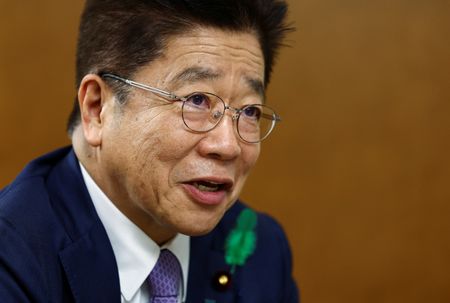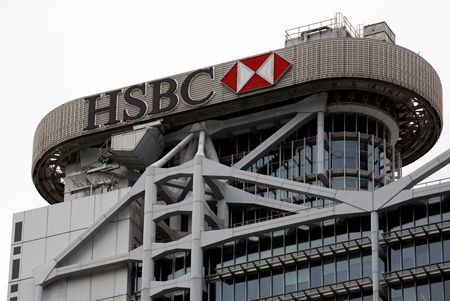By Takaya Yamaguchi and Makiko Yamazaki
TOKYO (Reuters) -Japan’s finance ministry is planning to request a record $220 billion for debt-servicing costs in next financial year’s budget as the world’s No. 4 economy faces rising interest rates, according to a draft document seen by Reuters.
The ballooning debt costs highlight Japan’s struggle to rein in spending, when it can no longer rely on ultra-low borrowing costs and on the Bank of Japan to effectively bankroll debt as the central bank shifts away from its decade-long stimulus programme.
The debt-servicing costs for interest payments and debt redemption for the year starting in April would total 32.4 trillion yen ($219.82 billion), exceeding 28.2 trillion allocated for the current financial year, the draft showed.
The assumed interest rate would increase to 2.6% for the next financial year from the current year’s final budget assumed rate of 2.0%, hitting the highest level in 17 years, according to sources familiar with the matter.
The assumed rate factors in 1.1 percentage point of leeway in the event of yield surges driven by emergency situations.
Japanese government bonds (JGBs) have plunged in recent months as concerns mounted about the government’s debt levels and deficit spending, sending the benchmark 10-year JGB yield above 1.6% to its highest since October 2008.
The ruling coalition’s major electoral defeat in July also adds to pressure for fiscal hawk Prime Minister Shigeru Ishiba to respond to calls from the opposition for tax cuts and larger subsidies.
The coalition has agreed with the opposition to abolish a decades-old gasoline surcharge tax “at the soonest this year,” a step that could result in a loss of tax revenue of 1.5 trillion yen.
Asked about rising interest rates and debt-servicing costs, Finance Minister Katsunobu Kato said on Tuesday that he was aware of bond market concerns about the country’s fiscal policy.
“I’m aware of bond market views that the recent market movements reflect various concerns about fiscal policy ahead,” Kato said. “We’ll carry out appropriate debt management and work to improve fiscal health to maintain market confidence,” he said.
Japan, saddled with the industrial world’s heaviest debt at more than twice the size of its economy, hopes to deliver a primary budget surplus in the next financial year for the first time in decades.
($1 = 147.3300 yen)
(Reporting by Takaya Yamaguchi and Makiko Yamazaki; Editing by Muralikumar Anantharaman and Sam Holmes)











